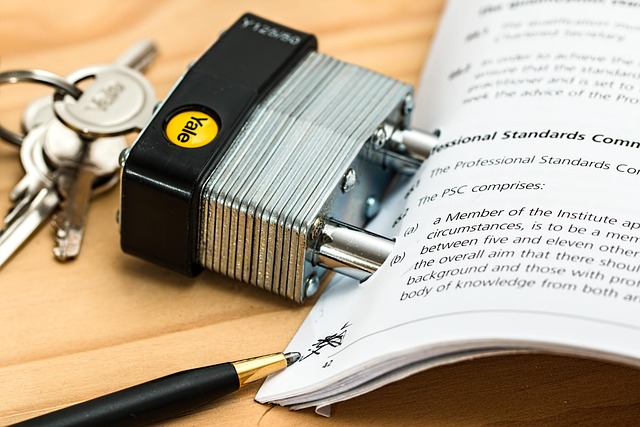Grandparent rights in Oregon involve a structured court process with specific eligibility criteria based on the grandchild-grandparent relationship and child's best interests. Understanding state family law statutes and consulting an attorney specializing in Oregon family law is essential. The process includes filing a petition, gathering evidence, navigating court deadlines, and presenting cases to assigned judges. Effective communication and preparation are crucial during hearings, focusing on the grandparent's bond with the grandchild and potential impacts on their life. After securing rights, enforcement and appeal options require ongoing communication with custodial parents and legal guidance within Oregon's court system. Navigating this process demands understanding of both the court and legal frameworks tailored to grandparents' unique situations.
Protecting grandparent rights is a crucial aspect of family law in Oregon, offering a legal framework for establishing and maintaining connections between grandchildren and their extended family. This comprehensive guide navigates the Oregon court process for grandparents seeking access or custody. From understanding eligibility requirements to presenting your case effectively, we delve into the steps involved, essential documents, court system navigation, and post-ruling enforcement. Empower yourself with knowledge and explore your legal options through this detailed exploration of the court process for grandparent rights in Oregon.
- Understanding Grandparent Rights in Oregon: Legal Framework and Eligibility
- Initiating the Court Process: Steps to File a Petition for Grandparent Access or Custody
- Gathering Necessary Documents and Evidence to Support Your Case
- Navigating the Oregon Court System: Assigning Judges, Filing Fees, and Court Deadlines
- Presenting Your Case: What to Expect During Grandparent Rights Hearings
- Post-Court Rulings: Enforcement of Orders and Exploring Appeal Options
Understanding Grandparent Rights in Oregon: Legal Framework and Eligibility

Understanding Grandparent Rights in Oregon involves navigating a specific legal framework that governs the court process for grandparents seeking access to their grandchildren. In Oregon, grandparent rights are recognized and protected under state law, allowing certain qualified grandparents to petition for visitation or custody. The eligibility criteria are clearly outlined, emphasizing the relationship between the grandchild and the grandparent, as well as the best interests of the child.
The legal process begins with a comprehensive understanding of Oregon’s family law statutes, which detail the conditions under which grandparents can gain access to their grandchildren. This often involves filing a petition in the appropriate court, providing evidence of the grandparent-grandchild relationship, and demonstrating why their involvement is in the child’s best interests. Navigating this court process requires careful consideration of legal options and strategies, making it essential for grandparents to seek guidance from qualified legal professionals experienced in Oregon family law.
Initiating the Court Process: Steps to File a Petition for Grandparent Access or Custody

Initiating the Court Process involves several crucial steps to ensure a strong legal argument for grandparent rights in Oregon. The first step is to understand the court process in Oregon, which requires familiarizing oneself with the state’s laws and regulations regarding family law. This includes researching the specific statutes related to grandparent access and custody. Consulting with an attorney experienced in Oregon family law is essential as they can provide guidance tailored to your unique situation.
Next, gather all necessary documents and evidence to support your petition. This may include birth certificates, marriage licenses, divorce decrees, financial statements, and any other relevant paperwork. Once prepared, file a petition for grandparent access or custody with the appropriate Oregon court. Be sure to follow the correct filing procedures and deadlines to ensure your case moves forward smoothly. Navigating the court process requires diligence and attention to detail to protect grandparent rights effectively.
Gathering Necessary Documents and Evidence to Support Your Case

When protecting grandparent rights through the Oregon court process, gathering necessary documents and evidence is a crucial step. It’s essential to understand what courts in Oregon require to assess grandparent access and custody. This includes birth certificates, marriage licenses, divorce decrees, and any previous court orders related to child custody or visitation. Additionally, you’ll need recent photos, letters, or other correspondence that highlights the positive relationship between grandparents and grandchildren. Medical records or reports from professionals who have interacted with the family can also be powerful tools in supporting your case.
Understanding the legal process in Oregon involves knowing what types of evidence are admissible and how to present them effectively. It’s wise to consult with an attorney specializing in family law, as they can guide you through the process and ensure that all required documents are accurately gathered and submitted. Navigating this part of the court process requires careful consideration and a thorough understanding of Oregon’s specific legal requirements for grandparent rights.
Navigating the Oregon Court System: Assigning Judges, Filing Fees, and Court Deadlines

Navigating the Oregon Court System can be a complex task, especially for those seeking to protect their grandparent rights. The first step is understanding the structure of the court with assigned judges handling specific types of cases. This ensures specialized knowledge in areas like family law, which is crucial when dealing with matters concerning children and grandparents.
Filing fees play a significant role in the Oregon court process for grandparent rights. These fees vary based on the type of petition filed, such as a motion or a formal complaint. It’s essential to be aware of these costs from the outset to avoid any surprises during the legal process. Court deadlines are another critical aspect; each stage of the case has specific time limits within which documents must be filed to ensure your grandparent rights case proceeds smoothly. Understanding and adhering to these court deadlines is vital to keeping your case on track in the Oregon court process.
Presenting Your Case: What to Expect During Grandparent Rights Hearings

When presenting your case for grandparent rights in Oregon, it’s essential to understand what to expect during the hearing. The first step is to gather all necessary documentation, including legal paperwork, medical records, and any other evidence that supports your request. This process involves understanding the specific requirements and guidelines set by the Oregon court system, ensuring every detail is accurate and relevant.
During the hearing, both parties will have an opportunity to present their cases. The court will assess the best interests of the child, considering factors such as the grandparent’s relationship with the child, the parent’s decision-making abilities, and any potential benefits or disruptions to the child’s life. It’s crucial to be prepared to answer questions honestly and concisely, providing clear insights into why granting grandparent rights is in the child’s best interest. Navigating the Oregon court process requires both legal knowledge and emotional resilience, ensuring your case is presented with strength and conviction.
Post-Court Rulings: Enforcement of Orders and Exploring Appeal Options

After a ruling in favor of grandparent rights through the Oregon court process, it’s crucial to understand how to enforce the orders and explore appeal options, if necessary. Grandparents must ensure that the court’s decisions are adhered to by all parties involved. This may include seeking legal assistance to navigate any potential challenges or modifications to the initial order.
Enforcement of orders involves regular communication with the custodial parents and, when needed, filing motions with the court. Exploring appeal options is also an important aspect for grandparents who believe the final decision does not align with their rights or the child’s best interests. Understanding the Oregon court process and consulting legal professionals can greatly assist in these post-ruling procedures.














